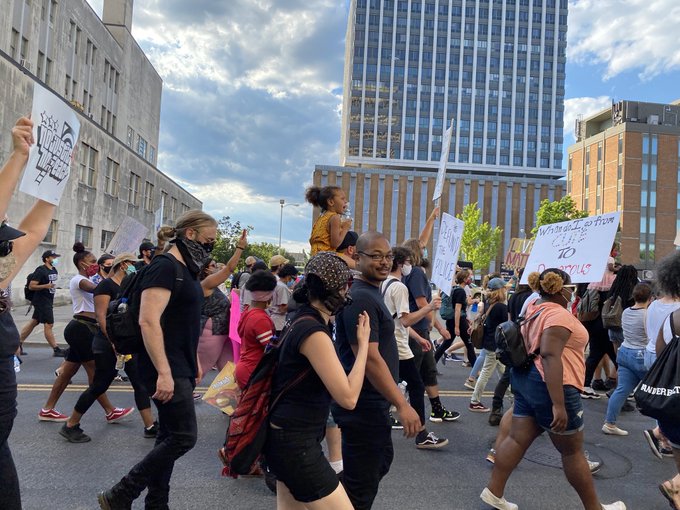
Tennessee lawmakers have set aside a measure that Republicans and Democrats said would’ve had a chilling effect on public protests.
The sponsor of a bill that would’ve given drivers limited immunity for injuring or even killing demonstrators who block roadways withdrew it following a Senate hearing Tuesday morning. The measure, SB 843/HB 513, also would’ve made it a felony to block a roadway or sidewalk.
Lawmakers said that would encourage drivers to hit protesters. Several were also uncomfortable placing harsh penalties on peaceful demonstrations.
Memphis Democrat Katrina Robinson said there’s a long history of people blocking roadways and sidewalks to make their point.
“Your granddaughter may wake up someday and say, ‘Hey, I want to be more involved. This is not right,’ ” Robinson told the measure’s sponsor, state. Sen. Paul Rose. “And she will be subjected to this same bill.”
Robinson cited the example of former state Sen. Thelma Harper, who will lay in state this week. In the 1980s, Harper took part in protests against a Bordeaux landfill that included blocking the road to the dump.

Black leaders march down Jefferson Street in 1960.
Across the country, several Republican-led legislatures have debated or passed similar measures, in the wake of last summer’s social justice protests. Many opponents argue the measures are intended to disrupt the marches and rallies that have characterized civil rights demonstrations for decades.
During a meeting of the Senate Judiciary Committee on Tuesday morning, Rose, R-Covington, argued there is a difference between peaceful demonstrations and those that are intimidating. He gave the example of a driver whose vehicle had been surrounded by protesters.
“This, in my opinion, strengthens the ability for that person to be immune to protect their own life and the life of the folks there in the vehicle with them,” he said.
But even some Republican members of the committee had qualms. The committee’s chairman, state Sen. Mike Bell, proposed reducing the penalties for blocking a roadway from a felony to a misdemeanor on the first offense. Under Tennessee law, felony convictions often result in the loss of voting rights.
In addition, lawmakers were told that in Tennessee, drivers already can avoid prosecution if they strike a pedestrian unintentionally, but passing a new law to that effect would encourage drivers to be reckless.
“What this bill will do … will likely add additional legal barriers and burdens to the many families in our states who are dealing with the devastating loss of a family member in a traffic crash,” said Nora Kern, executive director of Walk Bike Nashville. “This bill is unreasonable.”

